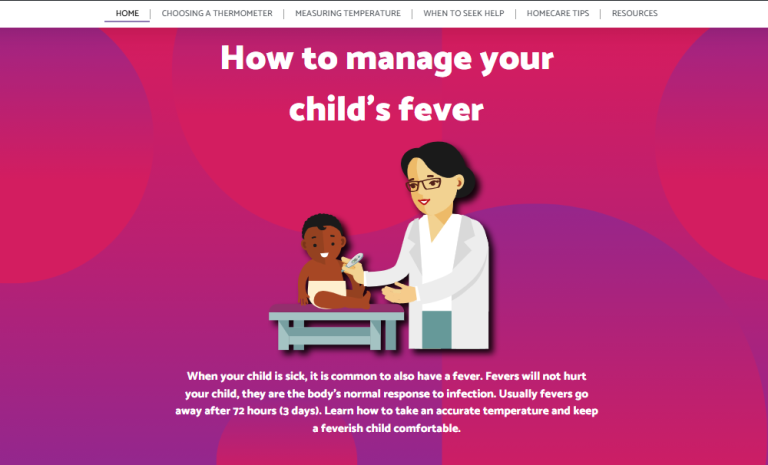Worried your child has a fever? This free guide can help you know what to do
It’s stressful when your child has a fever – and even more stressful when you’re not sure what to do.
Many parents wonder: Is this serious? Am I using the thermometer right? Should I call the doctor? You’re not alone. Fever is one of the most common reasons parents seek medical advice. That’s why we’ve created a simple, visual guide to help you navigate this, and we want to share it with you for free.

Why fevers can be so tricky
Fevers are one of the most common reasons parents seek medical advice, but they can still feel confusing and stressful. Many parents aren’t sure what counts as a normal temperature versus a true fever. What’s “normal” depends on how and where you take your child’s temperature – mouth, ear, armpit – and each method has a different range of “normal”. It can be hard to keep track of all that information, especially while your child isn’t feeling well.
A simple, free resource to help
That’s why we’ve put together this easy-to-read, visual guide on how to manage your child’s fever.
Fevers can be overwhelming, but you’ve got this. We hope our resources help your family feel a little more confident and calm.
Finding reliable health information can be tricky. We can help!
We want to help make a difference in children’s health. That’s why we make research-based resources that are easy to understand and free to access. All of our resources have been made with parents and healthcare providers. This helps us make sure they are clinically relevant, and that they have all the information you need. Every resource we make is available online, for free.
You can also find out resources on trusted healthcare sites across Canada, including MyHealthAlberta, SickKids About Kids Health, TREKK, and more! To find out more about us and what we do, check out the rest of our website!
